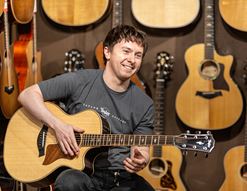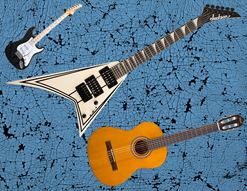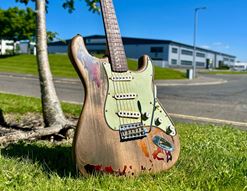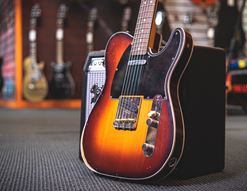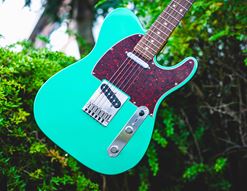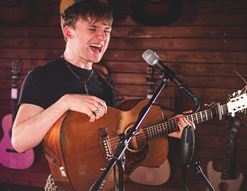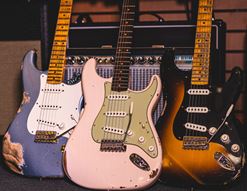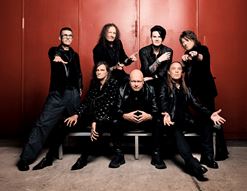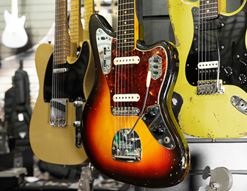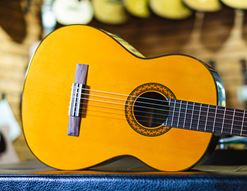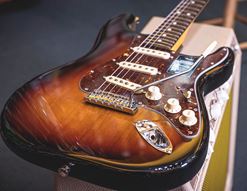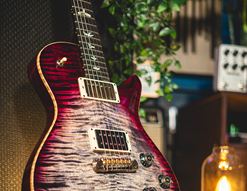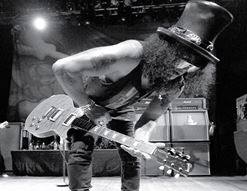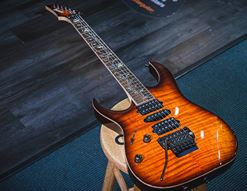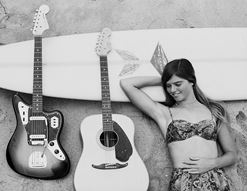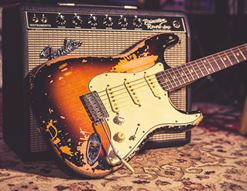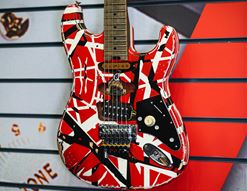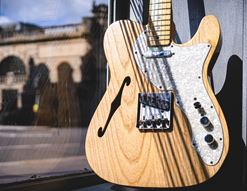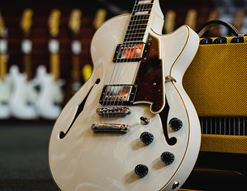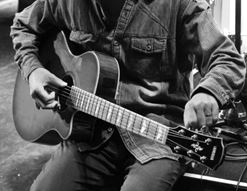Is there such a thing as a ‘best’ guitar for singer-songwriters?
Whilst you can definitely write a song on any guitar, there are certain styles that perhaps better lend themselves to the craft. That’s what I’m going to look into today, and I’ll highlight some examples of what I consider to be the best guitars for creatives to own if they want to write their own songs and perform them.
I’ll choose different guitars for different reasons, and the only caveat I have here is that they all be ‘electro’ models: that is, they all have built-in pickups. In my view, it’s part of the job description for any singer-songwriter to be out performing, and you can’t plug in an acoustic guitar without a pickup!
Aside from that, my choices will reflect different elements that may or may not apply to your own career.
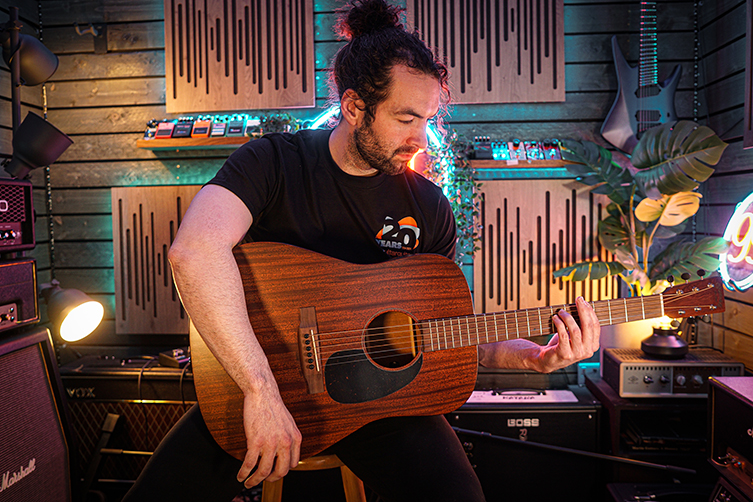
What do Singer-Songwriters Need in a Guitar?
There are a few special considerations and properties that will be required in a guitar for singer-songwriters. Here are a few that I’ve thought of:
Sound
Singer-songwriters by their very definition will often be using the instrument to accompany their voice, so the guitar’s sound has to allow for that. ‘Sound quality’ is a subjective thing, but what’s worth knowing is that most human voices operate in the upper-mid frequency range. Guitars that naturally have something of a ‘scoop’ in their sound around the mids can prove to be good for singers. Whilst it’s true that you can simply use an EQ pedal to carve out an appropriate EQ curve, the less you have to faff around with in terms of equipment, the smoother your gigs will go!
Percussion
This is more something to consider than a requirement, really. If you are playing solo, does your music need a little bit of percussive explanation as you play? Unless your style is very soft and introspective (and full of fingerstyle playing) then I expect you’ll play a fair bit of rhythm with chords. Steel string acoustics are far more lively in this regard than nylon string guitars. Also, bigger bodies project more sound, and therefore offer more rhythmic, percussive sounds. Bear it in mind!
Portability
Portability is worth consideration. This can mean the obvious - bringing the guitar onto public transport, for example, or fitting it into your car’s boot - but it can also be more subtle. If you are travelling on aeroplanes, does the cased guitar fit in an overhead compartment? If you are the type to play outdoors, can your guitar fit comfortably on your back? Smaller, purpose made travel-sized guitars are popular, but make sure they either work for your playing style, or else maybe have both a main guitar and a travel guitar. Buying two guitars? How dare I suggest that!
Living Space
Here’s a curveball for you: have you picked a guitar that is too large for you to leave out of its case in your home? It sounds a bit incidental, but I do know people who’ve become tired of their guitar getting ‘in the way’ and have relegated it to the cupboard! This is a crazy thing for any songwriter to do, so consider your living space and factor that into your guitar choice. If space is tight, a small guitar that is always at the ready is a far better compromise than a huge thing that gathers dust behind a cupboard door. Sound quality is not always the main consideration!
With all of that in mind, here are some suggestions of guitars for singer-songwriters…
Dreadnoughts
Let’s skip the preamble and get to it: more singer-songwriters use dreadnought guitars than any other style. Men and women, strummers and pickers: everybody uses them, and the reason they do is because you get a good response on all types of playing. Dreadnoughts strum well, project loudly, have a nice dynamic ability and are good with fingerpicking techniques and plectrums alike. I feel like the only reason why you might not want a dreadnought is the size: they are fairly large, but in reality they have become such a ‘standard’ across the world that most people just accept the size and get on with it.
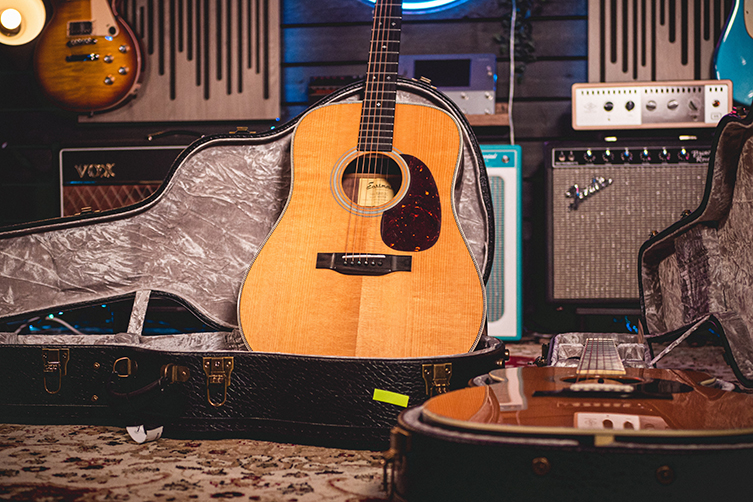
So, I feel like you should begin your quest by checking out a few dreadnoughts, and so here’s a short rundown of some that are worth your time, divided into three price brackets…
Affordable Dreadnoughts
- Alvarez AD30CE: start off with a workhorse that delivers. Alvarez always build in more quality than the competition, and this solid-topped dreadnought is a faithful and sturdy choice to get going with.
- Cort MR500F: another solid topped-acoustic here for under £300, this Cort is very impressive indeed! Underneath that gorgeous satin black finish lies a solid cedar top, so there will be a distinctly warmer tone from this guitar. It’s fitted with a Fishman pickup too, which is super-impressive at this price point.
Mid-priced Dreadnoughts
- Yamaha FGCTAVT Transacoustic: Yamaha are always a good choice (keep that in mind) but this one delivers an excellent guitar AND some special sonic wizardry! Unplugged, it can create reverb and chorus effects from within the guitar, and they sound genuinely excellent. On top of that, you can then plug into an amp or PA and enjoy those effects in your live sound too. Very cool, and very inspiring.
- Takamine GD30CE-12-BK: I’m putting this one in for two main reasons. Firstly, Takamine are indisputably one of the top brands for gigging players. You just have to check out how many world-class names use them to understand that they’re a brand to rely on. Secondly, have you considered a 12-string guitar? These can transform not only your sound, but your entire songwriting approach. I want you to consider that, and I think this lovely black Takamine may be a good place to go for you.
Top End Dreadnoughts
- Martin D-28: It’s the classic model, the original from which all other dreadnoughts have sprung. The most aspirational acoustic brand (alongside Gibson, perhaps) out there, and this to me is the definitive combination of spruce, rosewood, heritage and legend.
- Gibson Hummingbird: A guitar that sounds as good as it looks, and wow is it a handsome thing! The Hummingbird defines Gibson’s ‘upper mid’ sound, thus offering a distinct difference from the Martin sound, not to mention hefty stage presence from its striking visuals.
There are many more great dreadnoughts out there from Atkin, Sigma and many others, so begin with these recommendations and venture onwards if the dreadnought vibe is working for you.
But this isn’t just about dreadnoughts! Here’s the rest of my picks for you singer-songwriters…
Top Acoustic Guitars for Singer-Songwriters
Taylor GS Mini
In any of its many iterations, the Taylor GS Mini is a great shout. It’s small enough to be very handy, but big enough to be your main guitar. Everyone can play this, unless they have hands like shovels, basically. The real coup though, is in the fact that Taylor have not only made this louder than expected, but pretty brilliant sounding, too. Get the version with the pickup, and go with the wood combo that works for you: they are all equally effective.
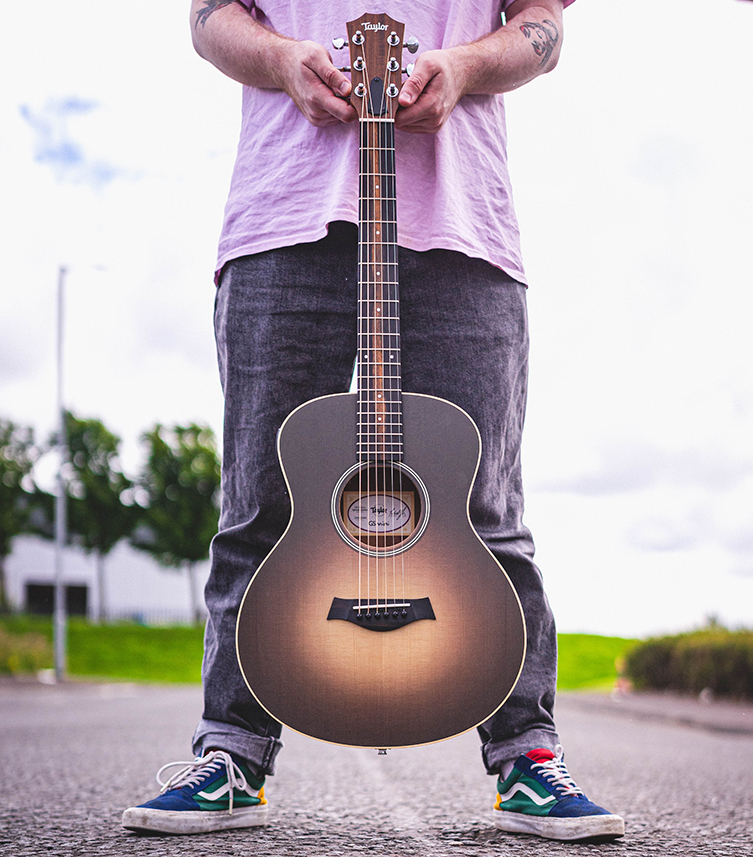
Fender Acoustasonic Player Jazzmaster
Is this an acoustic guitar? I’m saying yes. You can play this anywhere, and enjoy a feel that’s closer to an electric than an acoustic, though it still uses acoustic strings, which is actually an important factor in the overall feel of the guitar.
The Fender Acoustasonic excels at offering a palette of acoustic AND electric guitar tones when it’s plugged in, all with zero feedback. It’s a slim, portable shape too. Fender make the Acoustasonic in Telecaster, Stratocaster and Jazzmaster shapes: I picked the offset JM because I feel like the shape is more comfortable, and the revised electric pickup more effective. If you need to cover electric and acoustic sounds at a gig - and still want a good workhorse guitar - then the Acoustasonic Player Jazzmaster is an exceedingly good choice.
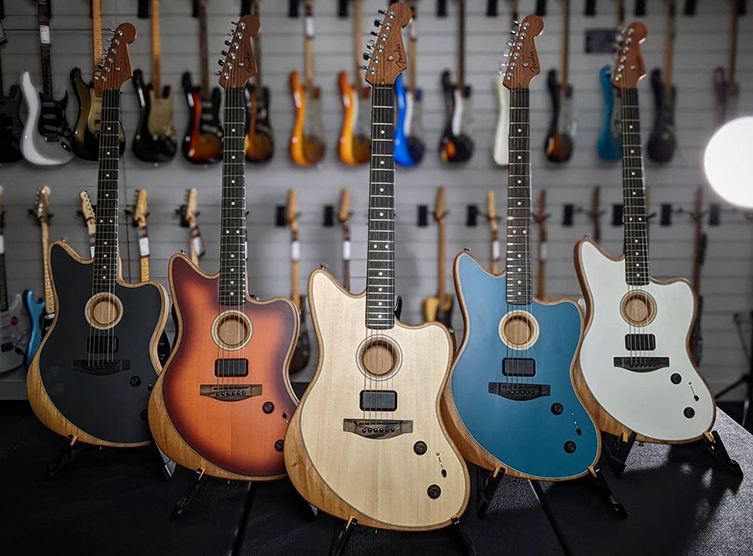
Epiphone Inspired By Gibson 1957 SJ200
By all means, if you have the cash then go straight to the wonderful Gibson SJ200, but stop at this Epiphone Inspired by Gibson 1957 SJ200 first and see how you get on with it! I say this because I was personally quite flabbergasted when I laid hands on this one. It’s not a cheap guitar, agreed, but this is an extraordinarily close replica of a guitar that costs many thousands more. This is big, boomy and ostentatious in all the right ways! If you are setting out to make an impression on your audience, this guitar will certainly assist!
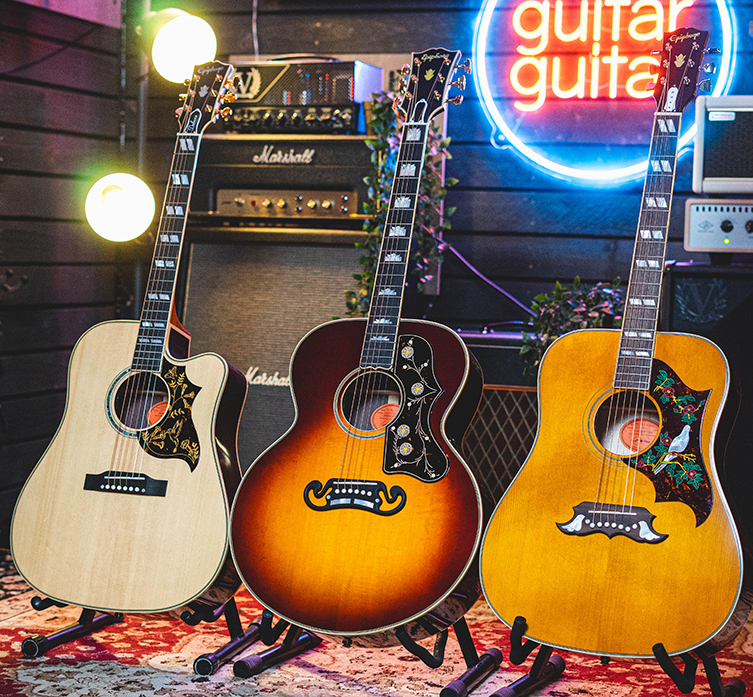
Cole Clark Thinline TL2 EC
If your primary goal is live performance, then Cole Clark is a brand you need to get acquainted with! This Australian guitar brand focuses on the ‘plugged’ sound of their acoustics, and have developed a special 3-sensor pickup system that is, frankly speaking, hugely impressive to hear.
Cole Clark uses native timbers such as Bunya or Tasmanian Blackwood (as in this example) for ethical reasons, and it’s part of the brand’s look and identity. We carry a large range of these guitars, so have a gander at them all because some of them get pretty eccentric! I picked the Cole Clark Thinline TL2 EC because the thinner body helps with portability and feedback control.
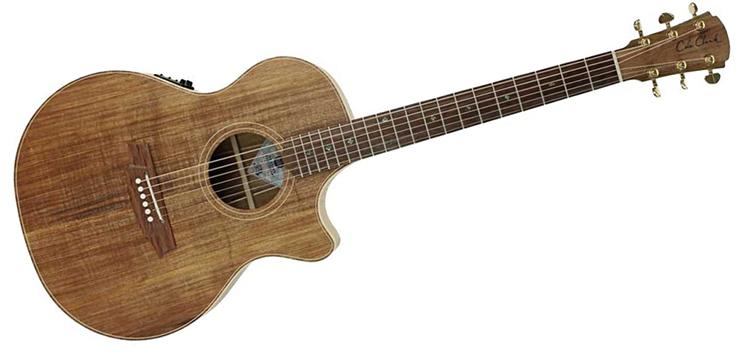
I’ve Scratched the Surface
Each of today’s guitar choices represents what I think will be excellent instruments for singer songwriters. As I mentioned, I chose them all for different reasons, and so I don’t really feel like many of them are necessarily competing with each other here.
That’s fine to say, but your hard-earned cash is ultimately going to drop on only one of these guitars, so I do encourage you to think about your requirements (both now and in the future) and have a decent shot of each contender in person, if you can. That is still the best way to determine how much you prefer one size, feel and sound over another.
Good luck in your search and don’t hesitate to reach out to us if you need any help: we are here to guide you towards your next dream machine!

